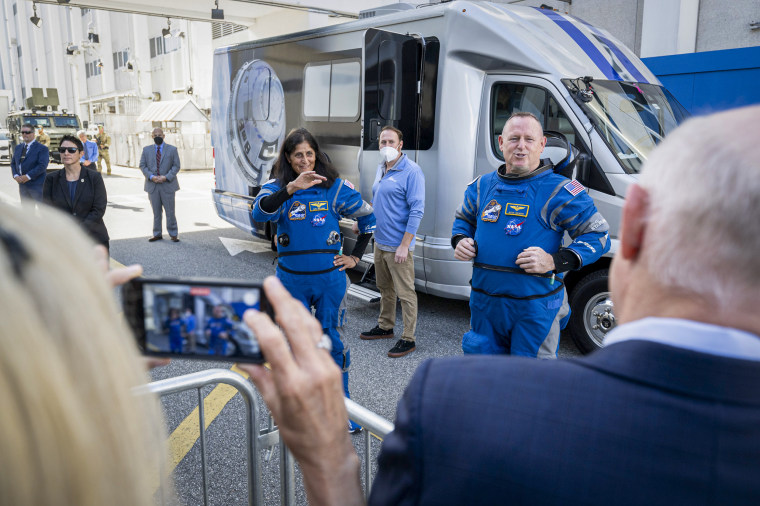NASA and Boeing were forced once again to call off the first crewed launch of the company’s Starliner spacecraft.
NASA astronauts Barry “Butch” Wilmore and Sunita Williams were scheduled to lift off aboard the Starliner from Florida’s Cape Canaveral Space Force Station on Saturday at 12:25 p.m. ET. The flight to the International Space Station would have been the vehicle’s first with a crew.
The launch attempt was scrubbed with only 3 minutes and 50 seconds to go in the countdown — yet another setback for Boeing, which has already dealt with years of delays and budget overruns with its Starliner program.
This crewed test flight would have been the final step needed for Boeing to show that the Starliner could safely ferry astronauts to and from the space station. A successful mission would have enabled NASA to authorize Boeing to conduct routine trips to the orbiting outpost, thereby giving the agency a long-awaited second option to SpaceX’s Crew Dragon capsule.
The decision to call off the launch was made after an automatic hold was triggered on a computer known as the ground launch sequencer, which controls operations in the final minutes of a launch countdown.






